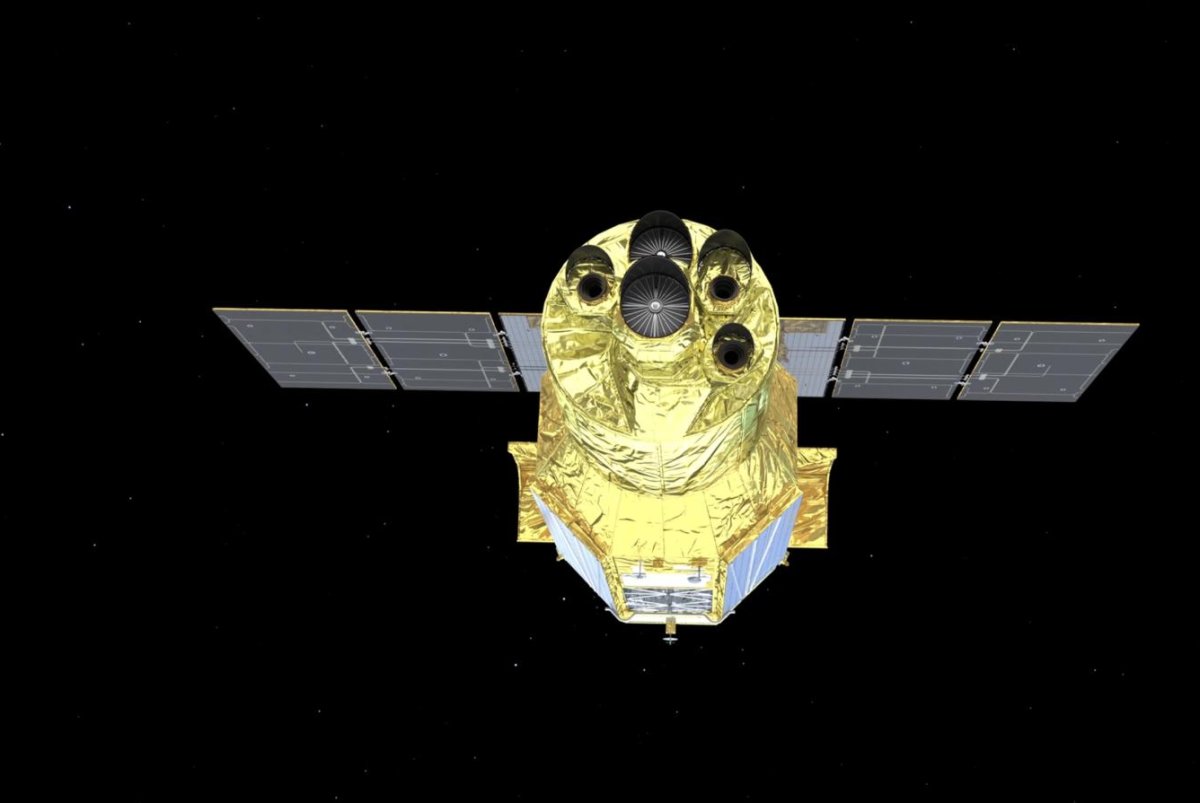Aug. 22 (UPI) — Scientists are optimistic that an upcoming space launch will enhance their understanding of spacetime warping.
Scheduled to launch on Sunday from Japan’s Tanegashima Space Center at 8:26 p.m. EDT, the X-Ray Imaging and Spectroscopy Mission (XRISM) is a collaboration between NASA, the Japanese Space Agency, and the European Space Agency.
The XRISM, equipped with a microcalorimeter spectrometer called Resolve, will be launched from Japan’s Tangashima Space Center using an H-2A rocket. If the mission goes as planned, it is expected to remain operational for about three years.
One of the main capabilities of the XRISM is its ability to measure the temperature and temperature differences of deep space objects. To function properly, Resolve must be cooled to an extremely low temperature.
“Resolve measures tiny temperature changes created when an X-ray hits its 6-by-6-pixel detector. To measure that minuscule increase and determine the X-ray’s energy, the detector needs to cool down to around minus 460 Fahrenheit, just a fraction of a degree above absolute zero,” explained NASA in a press release.
Scientists anticipate that the data collected by the XRISM will provide valuable insights into the structures present in deep space, such as massive galaxy clusters and particle jets produced by black holes.
The European Space Agency will also have a portion of observation time, accounting for 8% of the XRISM mission. During this time, they aim to compare Resolve’s observations with X-ray readings from their own XMM-Newton spacecraft, which has been collecting data for over two decades.
By observing the speed and composition of matter and particle jets near black holes, scientists hope to gain a better understanding of the potential warping of spacetime, a concept theorized by Albert Einstein to be responsible for gravity.
Earlier this month, NASA shared a video in which Sophia Roberts, a video producer at NASA’s Goddard Space Flight Center, explained the process of spectroscopy. Roberts expressed her appreciation for the critical context spectroscopy provides scientists in understanding the stories behind images.
Denial of responsibility! VigourTimes is an automatic aggregator of Global media. In each content, the hyperlink to the primary source is specified. All trademarks belong to their rightful owners, and all materials to their authors. For any complaint, please reach us at – [email protected]. We will take necessary action within 24 hours.



